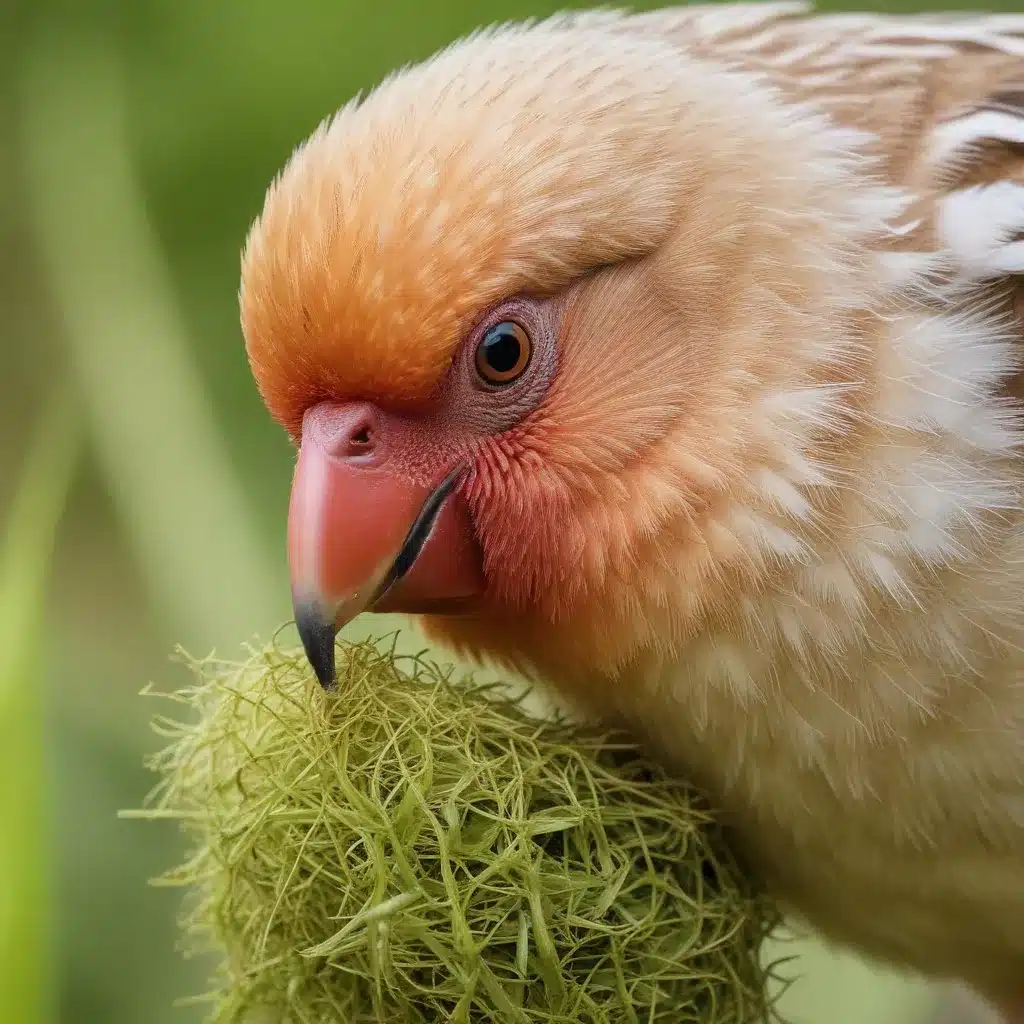
Avian Conservation Practices
Sustainable Bird Populations
As an experienced avian caretaker, I’ve seen firsthand the importance of responsible breeding strategies in maintaining healthy, sustainable bird populations. While the desire to create new and unique avian companions is understandable, we must approach this endeavor with the utmost care and consideration for the birds’ well-being.
Responsible breeding starts with a deep understanding of avian genetics and the need to preserve genetic diversity. By carefully selecting breeding pairs and monitoring the genetic makeup of our flocks, we can ensure that we’re not inadvertently creating health issues or compromising the resilience of our birds. This is particularly important for rare or endangered species, where every individual counts in the fight for conservation.
One of the key aspects of sustainable breeding is to avoid overzealous experimentation with new “designer” breeds. While the prospect of creating a novel feathered friend may be enticing, we must remember that dogs are not the only species susceptible to the pitfalls of irresponsible hybridization. Introducing unnatural traits or characteristics can have unforeseen consequences, both for the birds themselves and the broader avian ecosystem.
Ethical Avian Husbandry
Alongside responsible breeding practices, ethical avian husbandry is essential for maintaining the well-being of our feathered charges. This encompasses everything from providing appropriate housing and nutrition to minimizing stress and mitigating suffering.
At Mika Birds Farm, we prioritize the creation of environments that cater to the unique needs of each species. From spacious aviaries that allow for natural behaviors to specialized diets that support optimal health, we strive to ensure that our birds thrive, not merely survive.
Equally important is our commitment to minimizing stress and suffering. We’ve implemented strict protocols to ensure that any necessary veterinary procedures or handling are carried out with the utmost care and sensitivity. Our birds’ comfort and well-being are always at the forefront of our minds, guiding every decision we make.
Avian Welfare Regulations
To ensure that the avian industry maintains the highest standards of ethical practices, comprehensive regulations and oversight are essential. At the national level, we’ve seen the development of robust bird breeding standards that encompass everything from housing requirements to record-keeping protocols.
These standards not only serve to protect the birds but also provide a framework for breeders to operate within. By adhering to these guidelines, we can demonstrate our commitment to responsible and transparent practices, building trust with both regulatory bodies and our valued customers.
Regulatory Oversight
Underpinning these national standards are rigorous inspection and licensing programs. Breeders like ourselves are subject to regular audits and spot checks, ensuring that we maintain the highest levels of compliance. This level of scrutiny not only holds us accountable but also serves as a deterrent against unscrupulous practices that could jeopardize the well-being of our avian companions.
In addition to government-led initiatives, the avian industry has also embraced the use of voluntary ethical certification programs. These third-party accreditations provide an extra layer of assurance, allowing customers to identify breeders who have gone above and beyond in their commitment to sustainable and humane practices.
Sustainable Bird Habitats
Responsible avian breeding and husbandry practices are only one piece of the puzzle when it comes to ensuring the long-term sustainability of our feathered friends. Equally important is the preservation and restoration of their natural habitats.
At Mika Birds Farm, we take great pride in our efforts to protect and enhance the native ecosystems that surround our facilities. This includes initiatives to support the restoration of critical habitats, the reintroduction of threatened species, and the creation of captive breeding environments that closely mimic the birds’ natural habitats.
Habitat Restoration Initiatives
Our work in habitat restoration extends beyond the boundaries of our own property. We actively collaborate with local conservation organizations and government agencies to identify and implement strategies for revitalizing degraded environments. This could involve anything from planting native vegetation to implementing sustainable land management practices.
By engaging with the broader community, we’re able to amplify the impact of our efforts and inspire others to join us in our mission to safeguard the future of our avian species. Through educational programs, volunteer opportunities, and community outreach, we’re cultivating a culture of environmental stewardship that will endure long after our birds have taken flight.
Responsible Avian Trade
While the preservation of natural habitats and the ethical treatment of captive birds are essential, we must also address the challenges posed by the global trade in avian species. This complex supply chain requires a multi-faceted approach to ensure transparency, traceability, and the promotion of sustainable practices.
At Mika Birds Farm, we’ve implemented stringent supply chain management protocols that allow us to track the origin and journey of every bird that passes through our doors. This not only helps us to identify and eliminate any unethical or unsustainable practices but also provides our customers with the peace of mind that they are supporting a responsible and transparent industry.
Consumer Awareness Campaigns
Of course, the responsibility for promoting sustainable avian practices extends beyond just breeders and suppliers. As consumers, we all have a role to play in shaping the future of the avian industry. That’s why we’ve launched a series of educational campaigns aimed at empowering our customers to make informed decisions when it comes to acquiring their feathered companions.
By highlighting the importance of supporting reputable breeders, understanding the nuances of ethical certification programs, and recognizing the signs of irresponsible practices, we’re equipping our community with the knowledge they need to be discerning and conscientious consumers. Together, we can create a future where the well-being of our avian friends is the top priority, and the avian industry stands as a shining example of sustainability and compassion.


